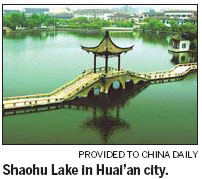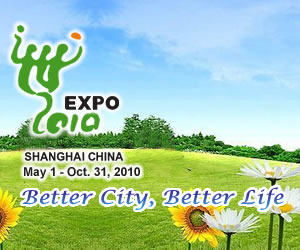Monkey King still weaving magic
Huai'an city has long been under the spell of the Monkey King. The historic city in northern Jiangsu province is the birthplace of Wu Cheng'en (1500-1582), author of the Chinese classic Journey to the West.
Earlier this month, Huai'an launched a six-month festival to celebrate Wu's life and works, an ambitious effort by the local government to put the city on the map as a tourist destination.

The events include a cultural workshop about Journey to the West, which will be attended by scholars from Japan, South Korea, Thailand, India and China; the premiere of Wu Cheng'en and Journey to the West, the country's first 3-D TV serial; a national children's painting competition "My Monkey King"; and a variety of art exhibitions on Wu's life and works.
"Wu Cheng'en and his Journey to the West has become an icon of Huai'an," said local official Zhao Hongquan at the opening ceremony. "The festival is a celebration of the lasting legacy of this Ming writer."
Born in Huai'an in 1500, Wu was known from a young age for his literary gifts. Although he wrote Journey to the West in the latter years of his life, he spent his life preparing for the novel.
When he was a child, he often traveled to the ancient temples and jungles around Huai'an with his father. The young Wu was fascinated by the local fairy tales his father told him about every place they visited. By the time he turned 30, he had collected so much material that he decided to produce his own stories. Yet, he did not finish the whole book until he resigned from his official position in his hometown.
Acclaimed as one of the "Four Great Classical Novels of Chinese Literature", Journey to the West has had an enormous impact on generations of Chinese. The magical world Wu created in the novel is still the source of inspiration for a mountain of children's literature, movies, television shows and dramas.
For fans of Journey to the West, there seems no better place to begin their exploration than Wu's former residence, which has been renovated and open to the public since 1982. The permanent exhibition will help them get a better understanding of Wu's life and the birth of the classic novel. Then they should take a stroll around the city where traces of the classic novel can be found at every turn. The God of River, for instance, which has been worshipped in local temples, looks like the Monkey King in Wu's novel.
The local government hopes the six-month festival will be a major tourist attraction, bringing thousands of visitors to the city, which is also home to a wealth of historic relics. For instance, Qingliangang, a Neolithic site, indicates the history of Huai'an dates back 5,000 years.
Over the past few years, the local government has invested more than 300 million yuan ($43.9 million) renovating a number of cultural relics, such as the ancient city walls, a 640-year-old residential complex, and a 1,000-year-old garden near Shaohu Lake.
During the festival, visitors can join the package tours, designed by the local tourism bureau and covering all of these historic sites. The festival also features performances of local opera and stilt walking, and a number of events showcasing diverse folk arts such as paper cutting and shadow puppets.
 0
0 








Go to Forum >>0 Comments